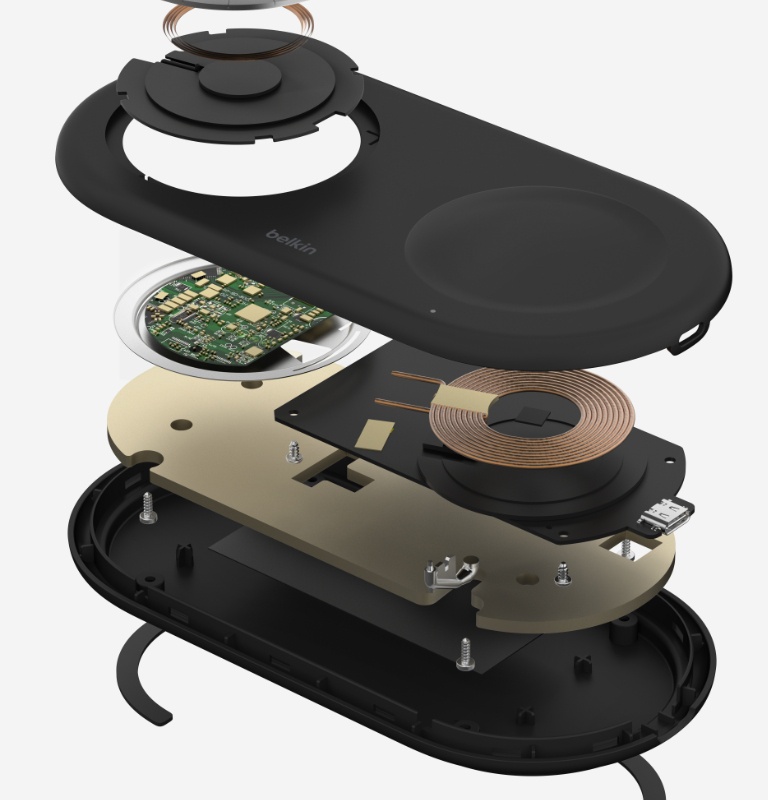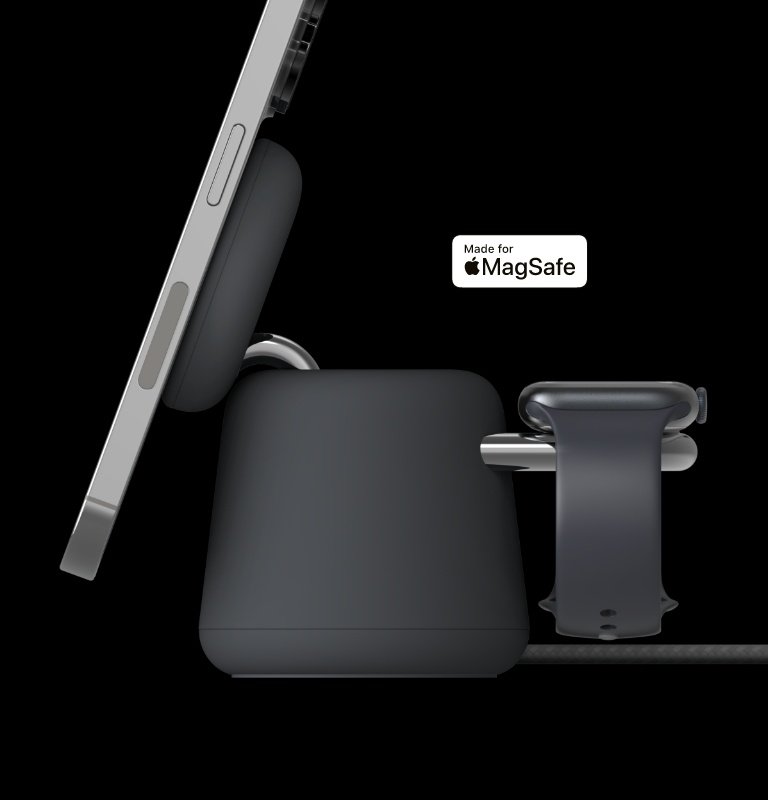 Designed in California | Belkin story of design and quality.
Designed in California | Belkin story of design and quality. USB-C Chargers FAQ
USB-C charger is a type of charger that uses the USB-C connector. It's a universal standard for charging and data transfer, known for its small size, reversible plug orientation, and versatility.
USB-C charging refers to the process of using a USB-C cable and charger to provide power to electronic devices such as smartphones, tablets, laptops, and more. It's a versatile and widely adopted standard for charging various devices.
The main difference between a USB charger and a USB-C charger lies in their port design, capabilities, and efficiency. A traditional USB charger, or USB-A, has a rectangular port limited in power and data speeds. The USB-C, or Type C charger, has a smaller, reversible oval port and can deliver more power, enabling faster charging for devices like laptops and phones. USB-C chargers, especially USB-C charging blocks and USB-C wall chargers, support advanced protocols like Power Delivery, making them the new standard for modern devices due to their performance, versatility, and efficiency over USB-A.
Not every device can be charged with a USB charger, as compatibility depends on port type and power needs. USB-A chargers work for older, lower-power devices, while USB-C chargers handle a wider range, including newer phones, tablets, and some laptops. Older or high-power devices may need adapters or specific power outputs to charge effectively.
No, using a USB-C or USB charger with a higher wattage than recommended won’t damage your device, as most devices only draw the power they need. However, it’s essential to use a compatible charger to avoid potential issues.
Yes, a Type C charger is the same as USB-C; both terms refer to the same connector type.
Yes, USB-C generally charges faster than Lightning and USB-A chargers due to its higher power delivery capabilities.
To clean a USB or USB-C charging port, gently remove any debris using a soft brush or compressed air. Avoid using sharp objects that could damage the port. If necessary, you can also use a small amount of isopropyl alcohol on a cotton swab to clean stubborn dirt or grime.
A USB charger is a device that is used to charge electronic devices by providing power through a USB port.
A wall charger is a charging device designed to be plugged directly into an electrical outlet or socket. It typically consists of a small box-shaped power adapter that converts the AC power from the wall into DC power that can be used to charge electronic devices.
Wall chargers are commonly used to charge devices such as smartphones, tablets, laptops, and other portable electronic devices. They are usually designed to work with a specific type of charging cable, which plugs into the charger on one end and the device on the other.
Most modern wall chargers are designed to provide fast and efficient charging for devices, with many supporting technologies such as Quick Charge and USB-C Power Delivery. However, it's important to choose a charger specifically designed to work with your device to ensure optimal performance and safety. Using a charger that is incompatible with your device can result in slower charging times or even damage the device.
USB wall outlets can charge devices faster than traditional USB ports on a computer or a standard wall adapter, provided they have higher amperage ratings. USB wall outlets are designed to deliver more power to devices, and the higher the amperage rating, the faster the device can charge.
For example, a typical USB 2.0 port on a computer can provide up to 500 milliamps (mA) of power, while a USB wall outlet with an amperage rating of 2.4 amps (2400 mA) can charge devices up to 4 times faster. Similarly, a USB wall outlet with an amperage rating of 3 amps (3000 mA) can charge devices even faster.
It's worth noting that the charging speed also depends on the device being charged. Some devices, like smartphones and tablets, are designed to accept higher amperage charging and can charge faster with a USB wall outlet. However, other devices may have built-in charging limits that prevent them from charging any faster, even with a higher amperage USB wall outlet.






+Bundle_NPI_gallery.jpg?sw=280&sh=280&sm=fit&sfrm=png)








